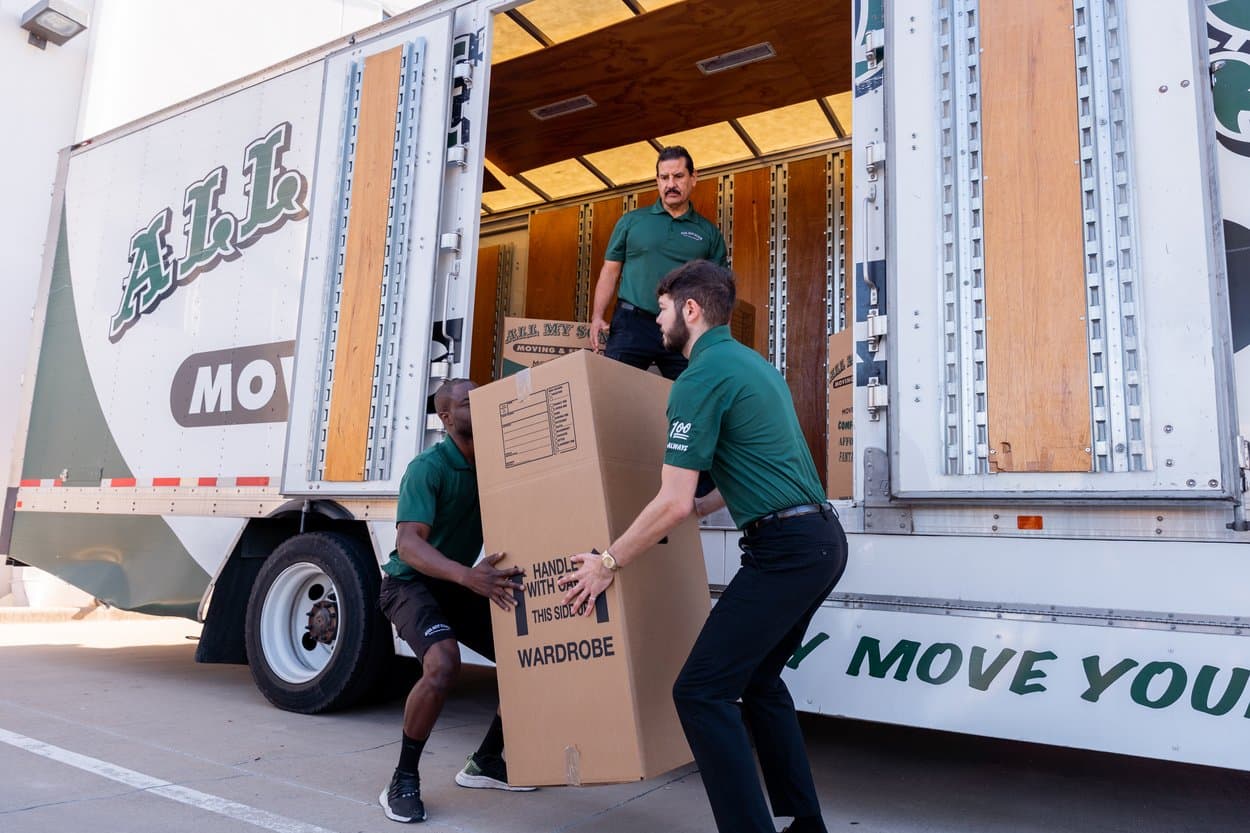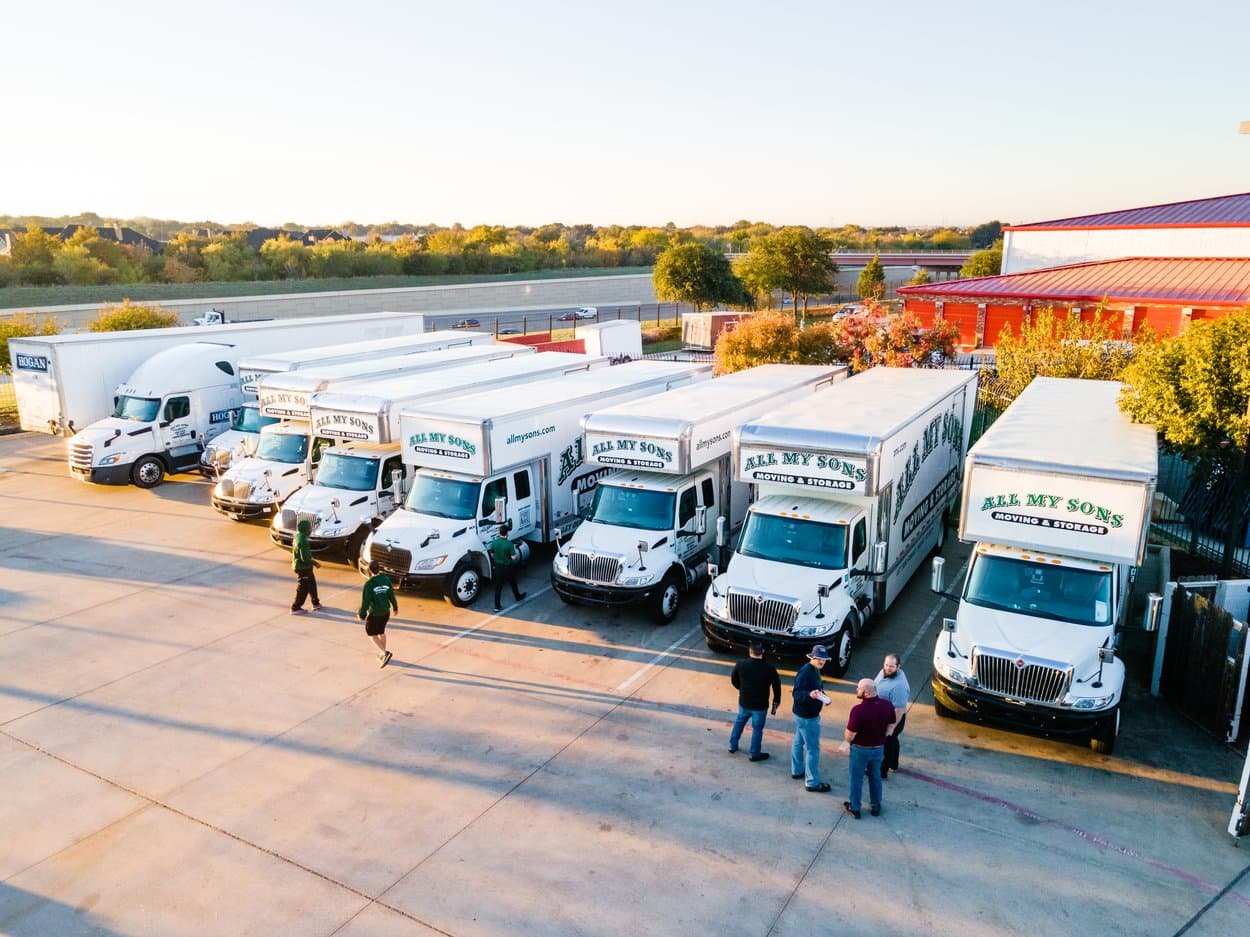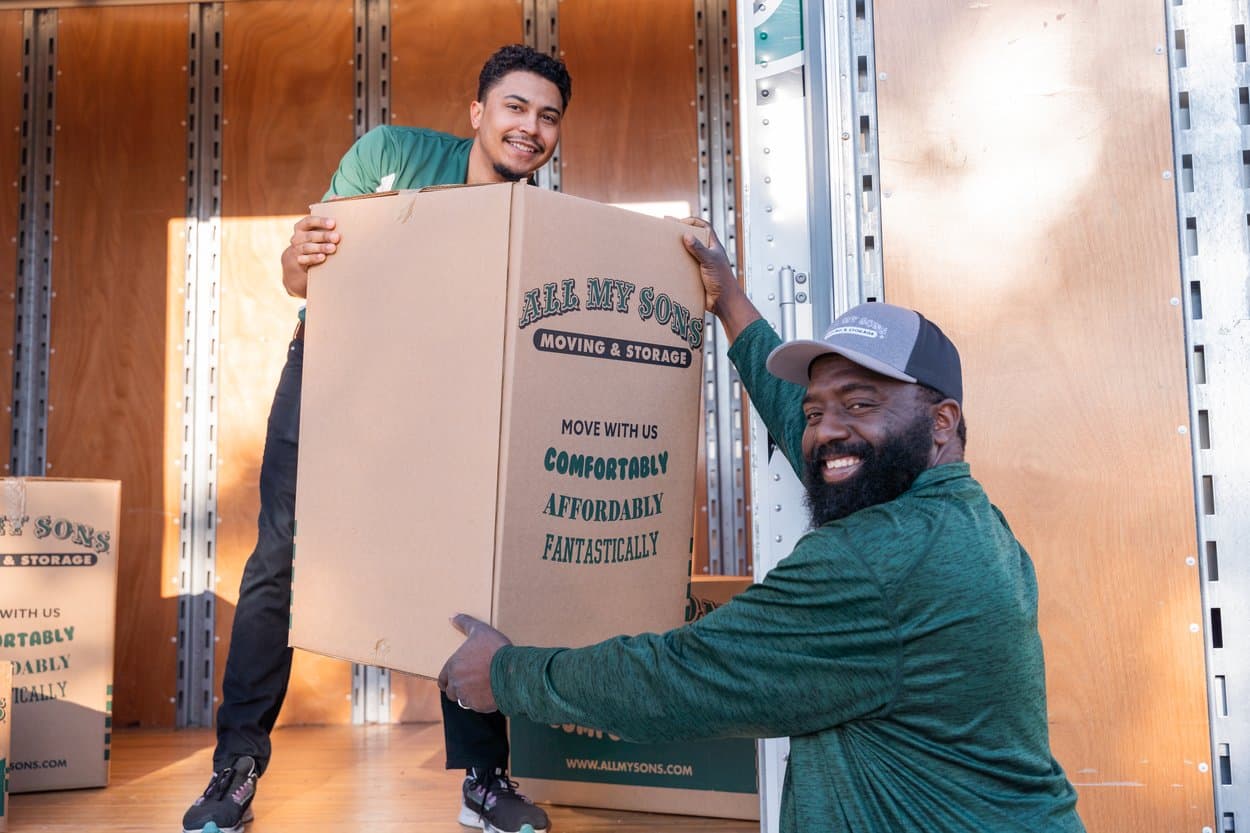A Checklist for the First-Time Renter
Moving into your first apartment? Trust this moving checklist from the experts in apartment moving at All My Sons Moving & Storage.
Whether you’re embarking into your first solo apartment away from family or downsizing to a smaller place, moving into a rental poses its own unique challenges. This special checklist is for the first-time renter.
At All My Sons Moving & Storage we understand that moving brings its own unique flavor of stress and anxiety. These checklists are designed to help get you organized for your move, which will make the entire process feel more manageable. As a first-time renter, you have more to consider before you take the plunge and grab your new keys. Use this checklist as a starting point to determine what you need to accomplish for your move.
BEFORE YOUR MOVE:
Determine Your Budget
One of the first steps in your move should be to determine your moving budget. There are several standard moving expenses to consider, as well as hidden costs that you should also plan for. When you have determined your budget you will be able to better make decisions about whether or not you should hire professional movers, how much packing material you can buy, and how much you’ll have left for new furniture at your place.
Research Movers
Contact the right professionals for the job and do some research on your local moving companies. Look for movers that are licensed and insured and read reviews to see what customers are saying about them. Compare their prices, services, and availability for your chosen move date. If you’re taking the DIY approach, you will need to determine which of your family and friends will be available to help with your move and where you will obtain or rent a truck.
Purchase Packing Supplies
Make an estimate of how much you’ll need to pack. If you’re moving out on your own for the first time, you might not have too much to box up but be sure to purchase boxes for your clothes, books, other media, and any memorabilia you want to have at your new place. You will likely need boxes, packing paper, bubble wrap, and tape at the very least.
Book Your Movers
At least a month prior to your move, secure your chosen movers on your move date. If you are moving yourself, make sure to reserve your truck and alert any helpers you have recruited what day you are moving.
Determine Furniture Needs
As a first-time renter, there may be furniture items you do not yet own that you will need upon moving in. You will at least need a bedframe and mattress, and will possibly need a dresser, dining table, or dining chairs. Look carefully at your rental floorplan and measurements to determine what will fit and what you may need to purchase before your move.
Declutter
Moving is a great time to evaluate what you want to take with you and what you should part ways with. If you are moving out of a family home for the first time, there may be memorabilia items you leave behind or furniture you decide will not come with you. Set aside items in good condition that you would like to donate and dispose of items that are not usable by someone else.
Pack the Non-Essentials
Off-season clothes, holiday decorations, books, and memorabilia are among the things that can probably go into your moving boxes first. These are the things you don’t see on a daily basis and will not miss if they stayed in a box for a while. As you pack your boxes, label them with the contents and try to notate which room they came from as well.
Pack the Essentials
The last things to go into boxes will be the things you use on a daily basis like bed sheets, clothing, or any kitchen appliances that are yours. You should wait until the day before your move to pack these items, mark them as essentials, and load them into your truck last to be unloaded first.
Pack an Essentials and Emergencies Bag
There are some items such as toiletries, wallet and keys, important documents, and medications that you should keep on your person during your move. Pack a bag of items that you use daily or would need in case of emergencies and keep it with you at all times.
Make a Donation Run
If you have amassed a collection of items you no longer want, then take time before your move to drop these items off at a donation center for the charity of your choice. Some charities offer pick-ups of large donations, check their website if you have a sizable donation to make.
DURING YOUR MOVE:
Sign Your New Lease or Rental Contract
Once you have chosen your new rental place and been approved, it’s time to make things official and sign your lease contract. Review your contract first to ensure you thoroughly understand the rules and regulations of your complex, as well as what you might need to pay in case you need to break your lease.
Set Up Utilities
Some rental companies may require you to set up your utilities before you move in. Call your local preferred providers for electricity, gas, and internet and set up a new account. Make sure your new home is active and ready to bill. If you require assistance getting your internet connected, then be sure to ask for a service technician to come visit.
Do a Walk-Through of Your New Place
Before you move any of your items in, do a complete walkthrough of your new apartment. Your landlord might have an inventory report for you to fill out. Take note of any existing damage and document it in your inventory report or with pictures and video. Check all the electrical outlets and light fixtures to make sure they are all in working order.
Supervise Your Movers
If you’ve hired professionals, this might be the easy part. Be available for any questions your movers might have and make sure your essentials are loaded onto the truck last to be unloaded first at your new place. If you are doing your move yourself with friends or family, then this is the time to roll up your sleeves and start the heavy lifting.
Clean Your Old Room
Now that everything you are taking with you has left your family’s house and been loaded onto your moving truck, make sure to clean up the room you leave behind. Vacuum the floor, dust any décor or furniture you are leaving, and scrub bathroom fixtures, mirrors, and tubs.
Unload Essentials First
If you have labeled the boxes containing your essentials, then you won’t have to dig for them. They should be unloaded from the truck first and placed in their respective rooms. When you are ready to begin unpacking boxes, these are the boxes you will unpack first. Some examples of essentials include bathroom toiletries, toilet paper, bed sheets, and any kitchen appliances you use daily.
AFTER YOUR MOVE:
Buy Groceries
After you have unloaded your essentials, you should make a run for groceries so that you are able to cook meals during your first week in your new home. This will likely be a full grocery run that includes oils, spices, and condiments that you do not yet own.
Make a List of Needs as they Arise
In your first rental, you might find yourself missing things that were always on hand at your family home. This could be special cookware pieces, kitchen appliances, or tools you used often. Keep a list of things you need to purchase for your new place as you realize you require them.
Purchase New Furniture Pieces
If you have arrived in your new place, unpacked what you own, and determined you have space for additional furniture pieces you did not own before, it might be time for a furniture shopping trip. Measure the space in your new rooms to determine what can best fit in your apartment, and then have fun shopping for couches, bedframes, and bookshelves.
File a Change of Address
You can file your change of address with the USPS up to three months before your move, but it might take at least 7 days for mail forwarding to begin. Once your change of address is filed, your new place can receive forwarded mail and some institutions you work with will receive notice of your address change as well.
Update Your Driver’s License
In some states you have a 30-day grace period to change your driver’s license address, but you should complete this step as soon as possible. If you have moved within state lines you might be able to complete this step online, check with your local DPS.
Register Your Vehicle
If you have moved across state lines, you will be required to register your vehicle in your new state. Remember to update your vehicle insurance with your new address as well.
Update Your Address with All Your Providers
Notify any providers you have for medical or financial services of your change of address. Go through your subscriptions and delivery accounts and make sure to update your address in those as well to prevent anything from being delivered to your old address.
Notify Friends and Family
Let your family members and friends know your new address. You wouldn’t want to miss the annual Christmas card. You can either send out moving announcements through the mail or call/text your loved ones individually.
Meet Your Neighbors
Getting settled starts with making community connections. Introduce yourself to your neighbors. You can bring a small gift like cookies or tea bags and a card with your contact information door to door, or invite your neighbors to an apartment warming party later.
Unpack and Organize
Once the essentials are unpacked, you can get to work unpacking and organizing the rest of your rental the way you want it. Put up your décor, get the books on the bookshelves, and add your special touch to every room.
Throw an Apartment Warming Party
One great way to get settled is to throw a special apartment warming party. You can invite friends, family, and neighbors. Since you might be limited on space in your rental, we recommend keeping it a small gathering or allowing people to come and go during the day. Play games, offer snacks, and accept fun apartment warming gifts.
Quick Moving Tips

How to Pack Clothes for a Move
All My Sons Moving & Storage provides professional packing services and has some special tips for packing your clothing for moving.

How to Make a Seamless Business Move
Tips for pulling off your business move from the experts in commercial moving services at All My Sons Moving & Storage.

How to Pack a Computer for a Move
Here are 5 steps that should help you get your computer secured for the move.


